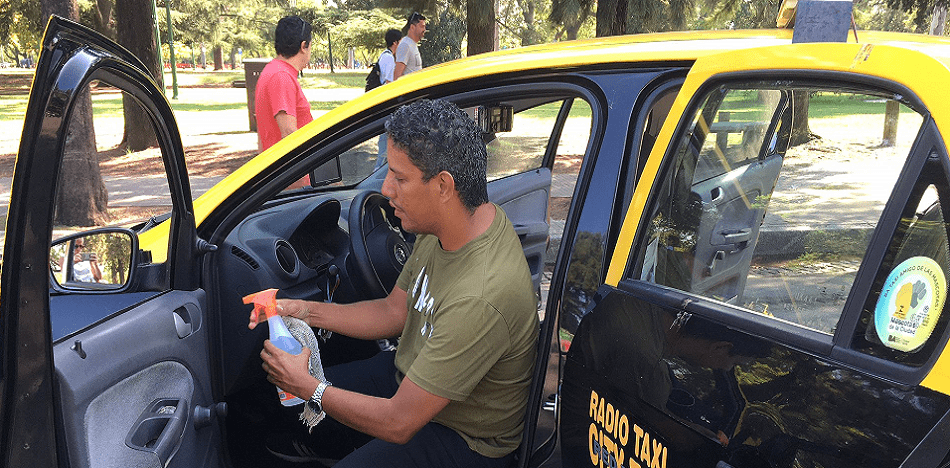
Spanish – There is only one topic of conversation, as is the case all over the planet. The talk one might hear in passing is inevitably related to the coronavirus pandemic (COVID-19) that has the whole world on tenterhooks. People are talking about the number of cases, discharges, and deaths, or the shortage of hand sanitizers and long queues in supermarkets.
At first glance, the thing that immediately attracts attention, but is logical, is the age range of people walking in Buenos Aires: we see people ranging from 15 to 60 years old. On the streets of Buenos Aires, you don’t see children or the elderly. Even though there are no classes in primary and secondary schools, the children are all kept indoors.
The shops have certain common denominators. The employees seem to be annoyed and nervous. They probably don’t feel like being behind the counter. But small shops face the short blanket dilemma: if they prioritize care, they don’t make money and vice versa. Large companies have larger support systems to fall back on, but most businesses are small to medium-sized enterprises, and workers know the income of the owners perfectly well. If there is no “work,” no one eats.
In the interior of the country, as in the city of Pinamar, municipal employees took to the streets to close businesses that were not performing primary functions amid the pandemic. This has not yet happened in the capital, but it is happening de facto for market reasons: businesses that do not provide food, medicine, or cleaning supplies are deserted. Surely it is a matter of days before they pull down their shutters out of obligation or common sense.
Long-distance buses have already been suspended. Meanwhile, short-distance buses (colectivos) are complying with strict guidelines. Nobody is allowed to travel while standing. When the seats are full, the driver does not take anyone else on board. Of course, the other side of the coin can be seen at the stations, where several have long lines.
Another recurring issue is the maximum limit of people allowed inside the open premises. There are signs on the doors indicating the number of customers who can enter at one time. Pharmacies are more restrictive. Several of them have customer service numbers on the door. One for younger customers and one for older customers. The older ones have a priority number to minimize the wait, although they are not seen on the street.
The moments of distraction are minimal. If one has to go out for something extremely necessary, and manages to forget for a moment what is happening, an oft-repeated scene puts things in their place: the postcard of a person in a mask entering or leaving a place, with a suitcase as if to go on a trip, to surely undergo extreme isolation or to go to a hospital, is no longer strange. Family and friends are seen around these worried people but at considerable distances. Although the specialists have already said that it is in vain, we all do the same in the face of these scenes. We hold our breath as if it would help. Gradually paranoia takes hold of all of us.
In the next few hours, new rules are expected to regulate the operation of supermarkets. Although the chains have already restricted some products to a few units per person, official initiatives have not been ruled out. There could be a maximum number of people allowed inside stores as has already been implemented for public transport.
If anything is circulating faster than the coronavirus pandemic, it’s fear. As the hours go by, the jokes are being replaced by uncertainty, and the festivities for labor licenses are being overshadowed by the fear of a situation similar to that in Spain or Italy.
Although panic will not help and is bad advice, the truth is that we must be careful as much as possible. The fact that the Pope is in Argentine does not provide any assurances at times like these.
 Versión Español
Versión Español












